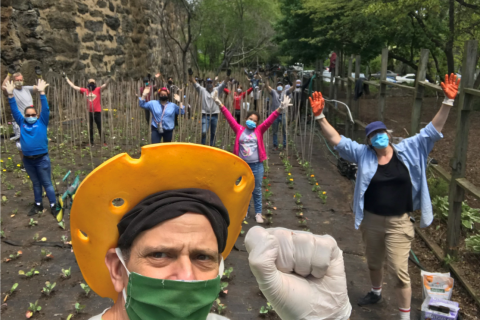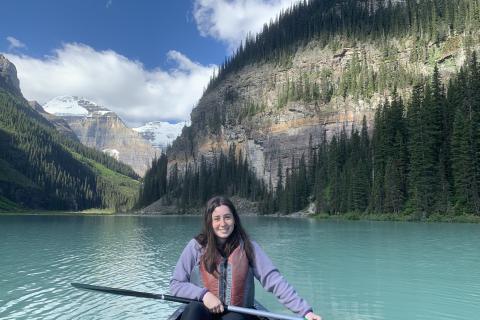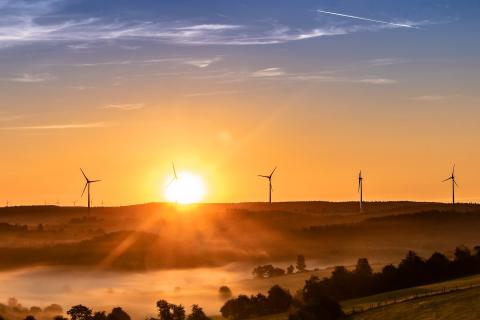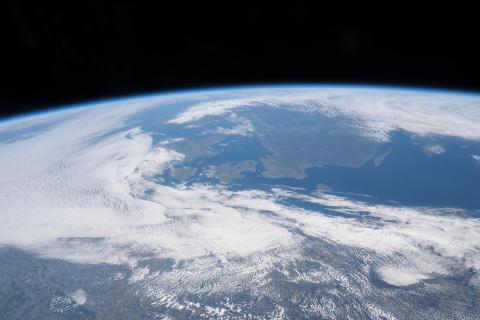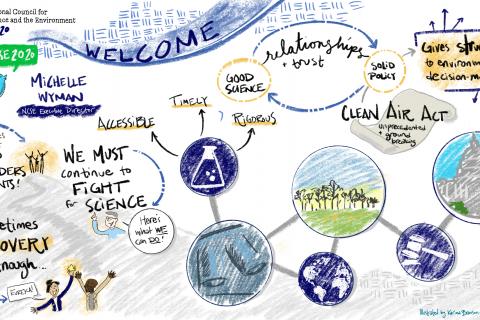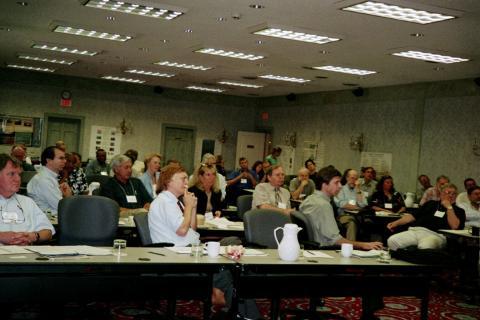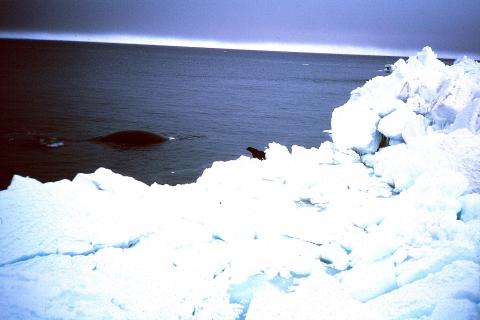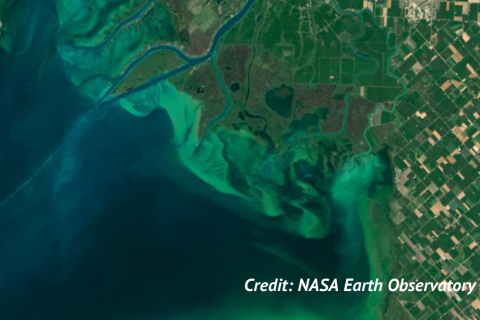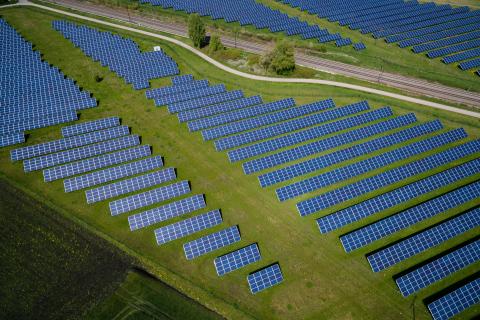* Essays offer an open forum to essays about science and the environment, and that they are the opinions of the writers but do not necessarily represent the views of GCSE.
GCSE Essays are authored by researchers, thinkers, and experts in GCSE's global network. GCSE Essays provide a deeper look into trending topics and new ideas across the environmental and scientific communities, with a particular focus on use of science to inform decision-making about complex environmental challenges.
Past essays have covered topics ranging from nature-based solutions, to health, to informative overviews of complex multilateral agreements. Essays are published on GCSE’s website and promoted in our monthly newsletter, The Connection, composed of approximately 20,000 scientists, educators, policymakers, business leaders, and officials at all levels of government across the globe. See submission form and guidelines here.
Remembering Mario J. Molina: A Brief Tribute to a Truly Great Public-Spirited Scientist
October, 2020
Dr. Mario J. Molina, who received the Nobel Prize in Chemistry in 1995 for work on chlorofluorocarbons and their impacts on the ozone layer, passed away October 7, 2020. NCSE was honored to have Dr. Molina and Dr. Sherwood Rowland present "THE CFC-OZONE PUZZLE: Environmental Science in the Global Arena" for the inaugural Chafee Memorial Lecture at the first NCSE Annual Conference in 2000.
Can Community Colleges Be a Force for a Future Transformed?
September, 2020
A discussion with community college leaders: Maria Boccalandro, Dallas College (formerly the Dallas County Community College District); Bob Franco, Kapi’olani Community College; Robert Rak, Bristol Community College; Stephen Summers, Seminole State College; and Nancy Lee Wood, Bristol Community College.
Climate, COVID-19, and Education: Building a Nation of Problem Solvers
May, 2020
The word pandemic comes from Greek and means “all people.” It’s an epidemic on steroids, spreading quickly across a wide geographic range and affecting a significant portion of the population. The novel coronavirus is fast-moving, highly contagious, and deadly.
A Personal Reflection from Generation Z: Climate and COVID-19
May, 2020
We are living in unprecedented times and I know that many share my feelings of anxiety and uncertainty. As someone invested in the future of our planet, these feelings are ones I have experienced before. To me, pandemic anxiety feels similar to climate anxiety. My anxiety is seeded with guilt because I recognize that I am in a privileged position and am less likely to be harmed by these global threats.
Our Future on Earth 2020: Uncovering the Linkages Among Global Risks
April, 2020
A bit of genetic material that skipped from animal to human, and from local market to international stage in a matter of weeks, is now a concern in every single health, social, and economic sphere around the world. If nothing else, the coronavirus pandemic perfectly illustrates the complex, interlinked challenges we face in 2020.
How Youth Are Reinvigorating the Environmental Movement
March, 2020
A half century ago, the United States faced a collective crisis: rivers caught fire, oil spills covered swaths of ocean, and injustice and inequality pervaded every corner of America. Faced with these challenges, we discovered the power of a united front. We broke down barriers and came together to fight for a more just, sustainable future, shattering the status quo.
Listen to This: Science Communications Through Podcasting
February, 2020
Have you wondered what is the most important thing you can do to fight climate change? Dr. Katharine Hayhoe, an atmospheric scientist in the Department of Political Science at Texas Tech University, has the answer—talk about it. In fact, Dr.
Science Forward: The Lasting Strength of Science Policy in Today’s New Normal
January, 2020
Scientific research has always been the backbone of environmental policymaking. And the interchange between science and policy is critical...the only way to preserve life as we know it. This year marks the 50th anniversary of the Clean Air Act, arguably the single most impactful environmental regulation in U.S. history. By 1990 it was saving 160,000 lives per year, projected to rise to 230,000 in 2020.
Taking Science to Action: The Evolution of Modern Academic Programs in Environment and Sustainability
December, 2019
The National Council for Science and the Environment (NCSE) has played a seminal role in the evolution of the environmental and sustainability fields within the academic community and how the results of scholarship and training impact the decisions we make in society.
The RISE Network: Towards a New Framework for University Interventions in Disasters
November, 2019
In the era of climate change—where the frequency of extreme weather and disaster events is increasing and social inequality magnifies their impact—universities are acting as first responders without being designed or organized to serve in this role. Immediately after major events such as Hurricane Maria’s catastrophic impact on Puerto Rico two years ago, universities have mobilized their communities to send support.
Harnessing Specialized Knowledge to Respond to a Rapidly Changing Arctic
October, 2019
In the 1970s, the International Whaling Commission’s scientists met at the University of Cambridge to consider the status of the world’s whale populations. For over 700 years, Cambridge had been a major force in establishing science as a powerful tool for understanding the world and informing public policies. The university also established academic and social traditions that are held with great tenacity.
Science in Environmental Decision-Making: The Enduring Mission of the National Council for Science and the Environment
September, 2019
In 2020, the National Council for Science and the Environment (NCSE) will celebrate the 30th anniversary of its founding. This hallmark event presents the opportunity to revisit the founding ideals and goals that have guided and shaped the NCSE mission and to reaffirm the validity of those ideals and goals. NCSE was established in 1990 and was known as the Committee for the National Institutes of the Environment (CNIE) at that time. We had a simple, straightforward goal: from its inception, CNIE was formed as a nonprofit, nonpartisan organization with a mission to have the U.S.
Could a Digital Ecosystem for the Environment Have the Potential to Save the Planet?
August, 2019
We currently make environmental decisions and invest financial and human resources based on assumptions, anecdotal evidence, and patchy data. We cannot assess progress for 68% of the 93 environment-related SDG indicators due to a lack of data (see Figure 1). A digital ecosystem for the environment would provide people with the data and insights necessary to make better natural resource governance decisions, target financial investments, and change consumption and production patterns.
Research to Action: The Science of Drawdown
July, 2019
Drawdown: “The point in the future when levels of greenhouse gases in the atmosphere stop climbing and then begin to steadily decline, ultimately reducing global warming.” Over the past five years the Project Drawdown organization has assembled an international team of researchers to quantify a portfolio of 80 existing climate solutions that together could achieve this goal.
EnvironMentors Reflections: Youth Learning Skills in the Lab and Life
June, 2019
NCSE invited the 2019 EnvironMentors National Science Fair winners and chapter leaders to share their experiences and give their perspectives about their time as EnvironMentors.


